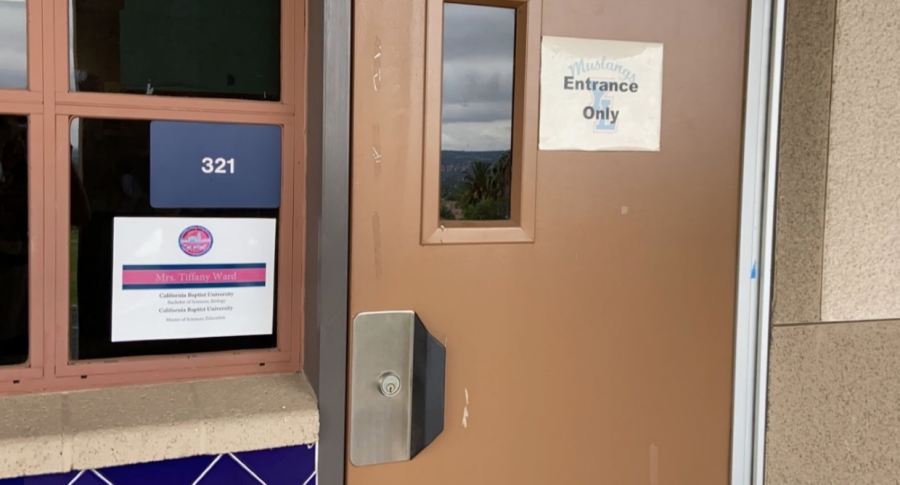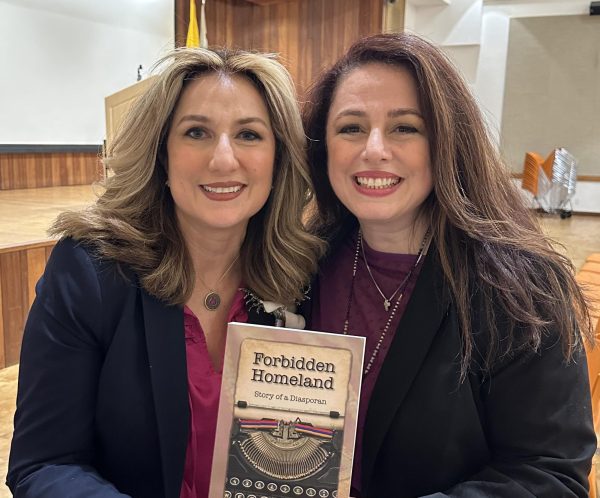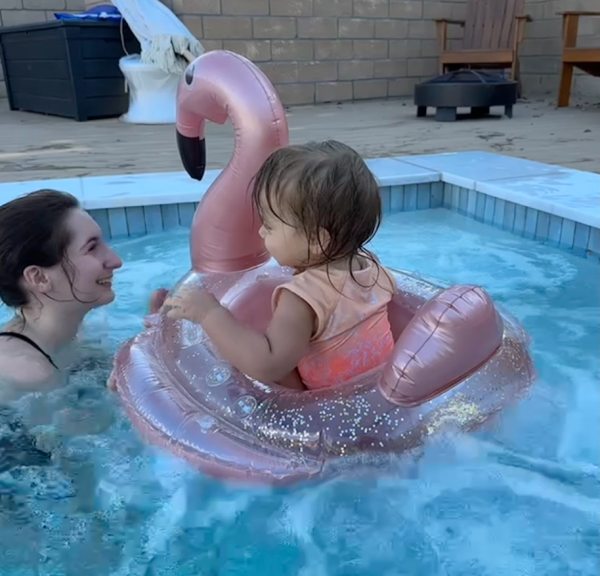Why AP classes?
Mrs. Ward teaches AP Chemistry here in Room 321, which is arguably the most challenging (and, Mrs. Ward says, the most rewarding) course on campus.
June 7, 2021
“How many APs are you taking?” You might hear this question asked a lot among upperclassmen, as the junior and senior school year offer a much wider variety of AP classes to take. Every topic of study has a number of AP classes at this school, from European and US history; chemistry and biology; statistics and calculus; literature and language composition; and Spanish and Japanese. AP classes are fairly popular among Yorba Linda upperclassmen, so what are the benefits of taking them?
First of all, what exactly is an AP class, and what differentiates them from honors classes? APs — formally known as Advanced Placement — are like honors on steroids, usually being more difficult (hence why most AP courses are locked to underclassmen).
Honors classes are more rigorous classes of the school’s regular classes, with its curriculum individual to the school’s. On the other hand, the Advanced Placement program is developed by the College Board, who dictates its curricula. Advanced Placement offers college-level material and exams to its students, giving high schoolers a taste of college education before the real deal.
Being college-level courses, AP classes can also offer college credit — on a condition. AP courses often include a corresponding AP exam at the end of the year, which is optional but costs a standard $95 for each exam for students in US schools. These tests are scored from a 1 to 5 (5 being the highest score), with a 3 usually considered the passing score.
Most colleges will accept Advanced Placement for college credit only upon receiving passing scores of either 3, 4, or 5 — a condition unique to each college, so be sure to research AP exam requirements for your desired colleges. On top of that, signing up for AP exams is not restricted to students taking the AP course and is open to everyone, opening up the option of self-studying for particularly driven students.
Given the emphasis on scoring well in the AP exams, many teachers may offer a grade boost for classes based on exam scores. These grade boosts can range from a specific number of percentage points (a 5% grade boost for a 5 scored on the exam, for example) to an entire letter grade jump. Further, some percentage boosts might offer the option to be split across semesters. That’s right, you might be able to change a past B+ from the first semester into an A- if your teacher allows that.
AP classes can affect GPA as well. Many high schools, Yorba Linda High included, give AP classes an additional point for GPA, so students taking APs can have a higher GPA than the traditional 4.0. As such, it’s possible to have a 5.0 GPA due to AP classes.
For freshmen, AP Human Geography is offered here at Yorba Linda, which can serve as a gateway AP class for interested students. AP European history is also another popular choice that becomes open in sophomore year. After that, during junior year, a far wider selection becomes available, with AP English Language and Composition and AP US History especially popular options.
Tyler Yang (10), takes AP Chemistry, which is headed by Mrs. Ward. The class is usually composed of juniors and seniors and is often considered the most rigorous course at Yorba Linda High. To succeed in AP classes, Tyler suggests “paying attention in class and asking a lot of questions if you feel confused.”
AP courses are popular among higher achieving students because of their attractiveness to more prestigious universities, who often view AP endeavors as a student’s ambition to challenge oneself and capability of handling rigorous college work. However, for those interested in Advanced Placement, be sure to talk with your counselor and plan out the right number of AP courses to balance your workload with extracurriculars, social life, and enough sleep.
























Karina Shah • Jun 13, 2021 at 5:58 PM
Super informative article! I think dual enrollment classes are another great option for those who want college credit. Cool article!